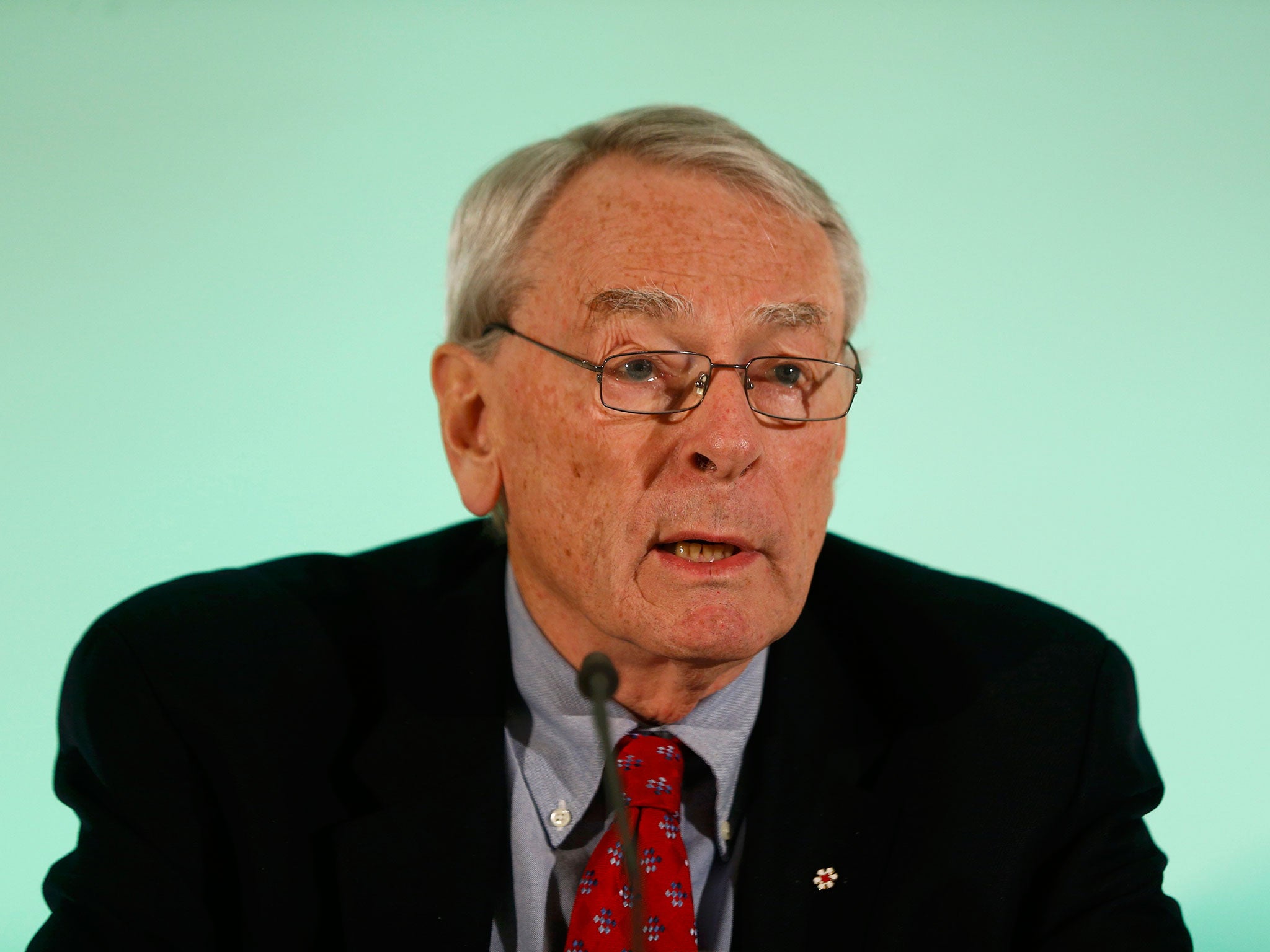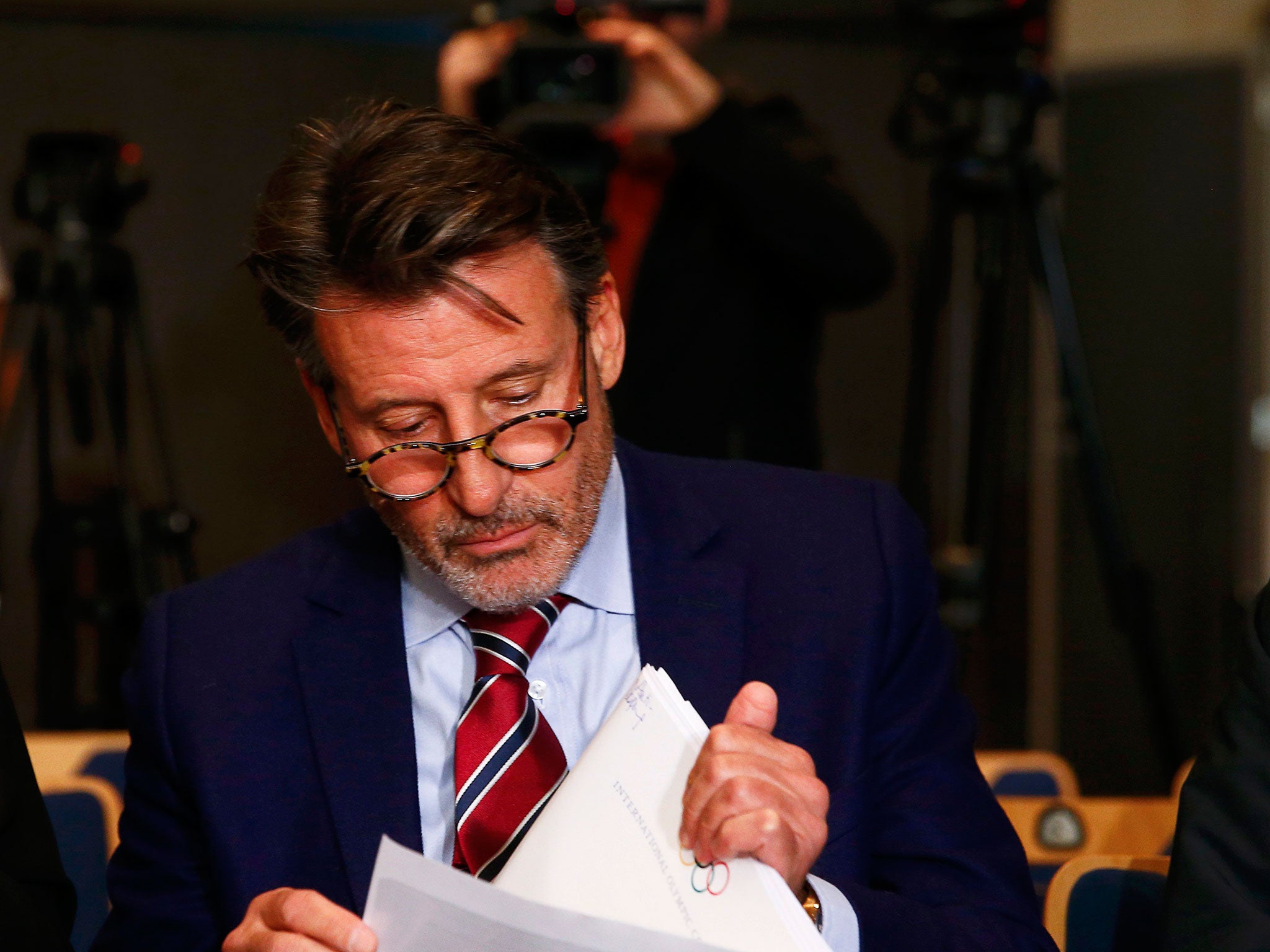IAAF 'could not have been unaware of the extent of doping in athletics', claims second part of Wada report
Former Wada president Dick Pound has delivered the second part of the independent commision's report into widespread doping by Russian athletes

Your support helps us to tell the story
This election is still a dead heat, according to most polls. In a fight with such wafer-thin margins, we need reporters on the ground talking to the people Trump and Harris are courting. Your support allows us to keep sending journalists to the story.
The Independent is trusted by 27 million Americans from across the entire political spectrum every month. Unlike many other quality news outlets, we choose not to lock you out of our reporting and analysis with paywalls. But quality journalism must still be paid for.
Help us keep bring these critical stories to light. Your support makes all the difference.
Lord Coe is facing renewed pressure on his position as IAAF president after a new report ruled that the IAAF Council and his right-hand man Nick Davies must have been aware of the scale of doping in athletics.
The second report compiled by an independent commission of the World Anti-Doping Agency into the Russian doping scandal said the IAAF Council - which included Coe at the time - "could not have been unaware of the extent of doping in athletics".
It adds that Davies, who stepped aside from his position as IAAF chief of staff last month, was "well aware of Russian 'skeletons' in the cupboard".
The report, announced at a news conference in Munich, states: "The IAAF Council could not have been unaware of the extent of doping in athletics and the non-enforcement of applicable anti-doping rules.
"There was an evident lack of political appetite within the IAAF to confront Russia with the full extent of its known and suspected doping activities."
The report, presented in Munich by commission chairman Dick Pound, said it was too easy just to blame the failures on Coe's predecessor Lamine Diack, who along with his son Papa Massata Diack and other officials is under investigation by French police for taking money to cover up doping by athletes.
It adds: "Failure to have addressed such governance issues is an IAAF failure that cannot be blamed on a small group on miscreants. The opportunity existed for the IAAF to have addressed governance issues. No advantage was taken of that opportunity."
Coe was present in person at Pound's news conference in Munich, having insisted on Wednesday there had been no cover-up, and had no intention of standing down.

In terms of Davies, the report states he did not mention any knowledge of the delays in reporting doping violations when he was interviewed by the commission in June. A subsequent leaked email from him to Papa Massata Diack showed Davies discussing a plan to delay the announcement of positive tests by Russian athletes.
Commission member Richard McClaren said at a press conference in Munich: "The information the independent commission has very clearly indicates that the disruption of the federation emanated from the very top - the president Lamine Diack.
"He inserted his personal legal advisor Habib Cisse into the IAAF medical and anti-doping department in November of 2011 with the London 2012 and the Moscow 2013 World Championships coming up. He did so to enable Cisse to manage and follow up Russian athlete biological passport cases.
"The Russian coaches around this time did not have a good understanding of the ABP process. They had mastered the evasion, manipulation and sometimes destruction of urine samples of Russian athletes so as to not produce positive results, but they had not yet learned how to do the same for the ABP.
"The deliberate insertion by the president of Cisse and his actions were intended to achieve the same results of manipulation and delay with the ABP cases involving the Russians the same result as had been achieved with the urine samples.
PA
Join our commenting forum
Join thought-provoking conversations, follow other Independent readers and see their replies
Comments